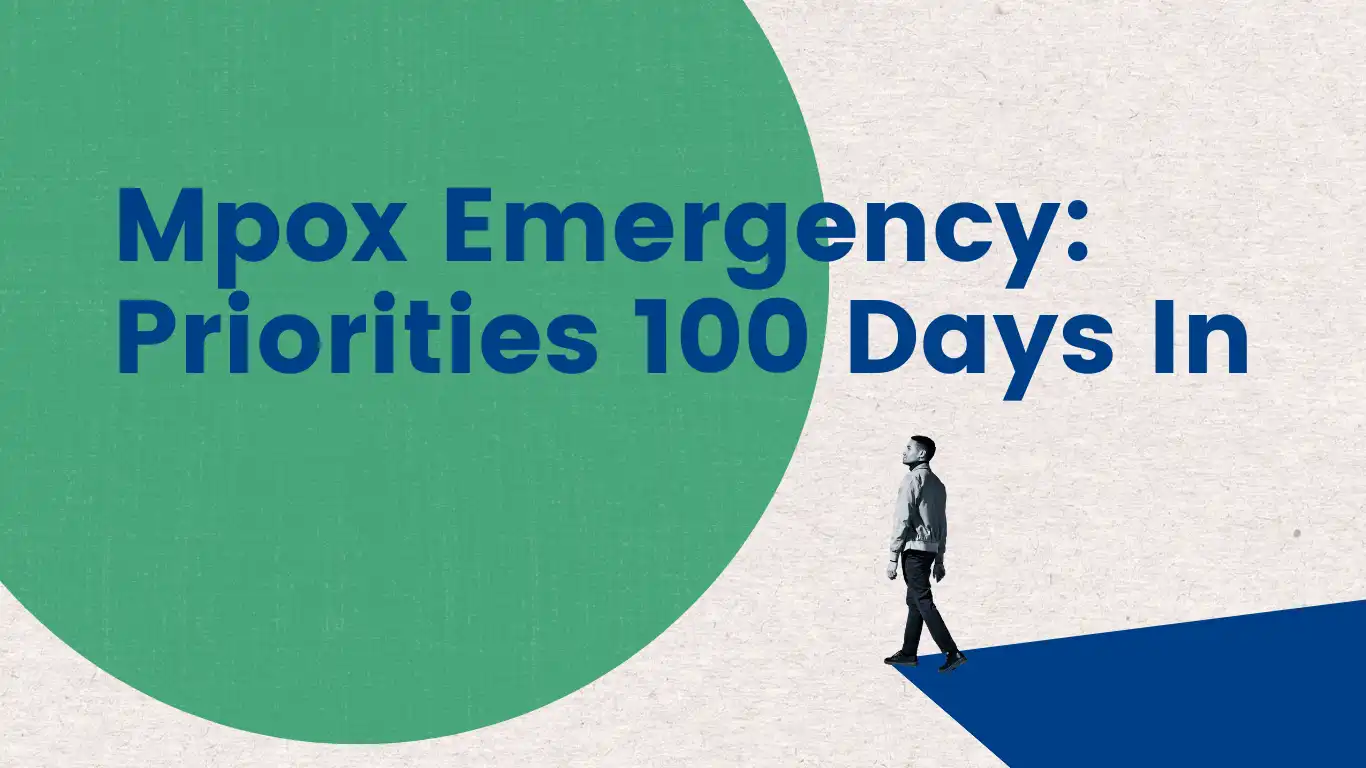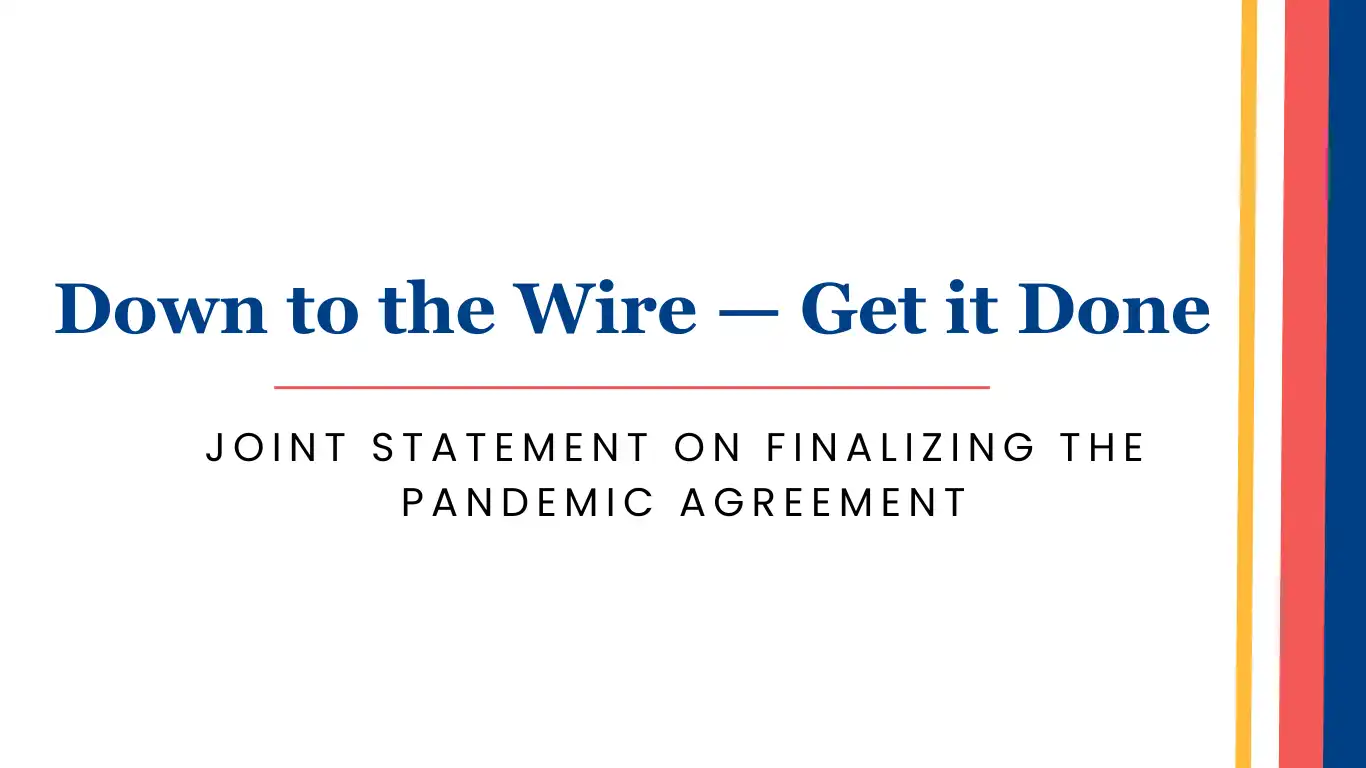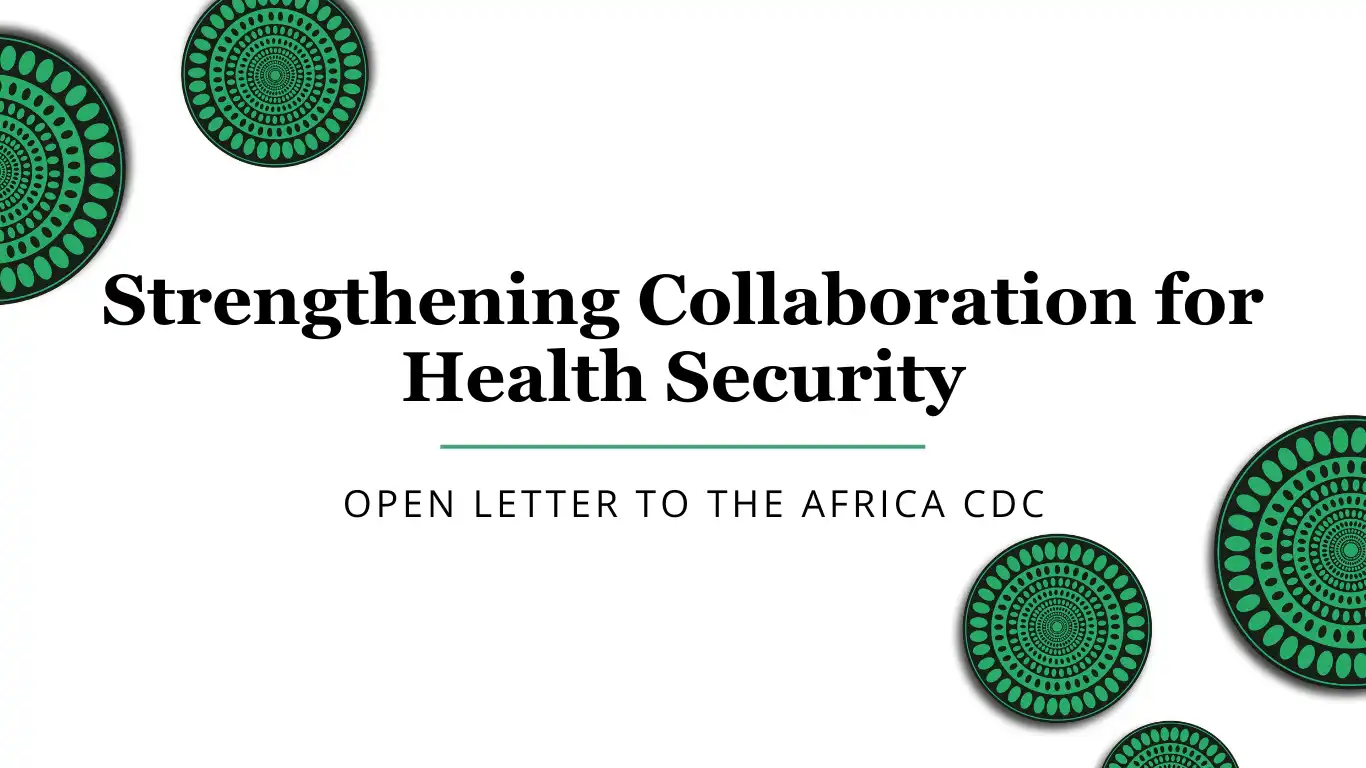This week marks 100 days since the mpox outbreak was declared a Public Health Emergency of Continental Security (PHECS) and Public Health Emergency of International Concern (PHEIC). Mpox continues to spread within and between countries, and vaccine doses, community-level interventions, and financial investment remain far below what’s needed to expeditiously end the health emergency. It is time for leaders from across the world to step up and support a coordinated, continent-led response to end this emergency as quickly as possible.
Leaders should prioritize now:
- Real-time, fully transparent information-sharing on needs, challenges, and decision-making to fuel increased mobilization and catalyze delivery. WHO and Africa ACDC must accelerate real-time and detailed information-sharing without delay. Transparent and public information sharing on total mpox response financing is urgently needed, and all partners should provide information on vaccine needs, purchases, and donations. The launch of the Africa CDC Dashboard is an important first step, and additional real-time data and analysis to underscore areas of progress/challenge, unpack why certain gaps exist, and detail how decisions are being made on how, where, and when to allocate resources must be prioritized. The interim Medical Countermeasures Network (i-MCM-Net) mpox Access and Allocation Mechanism is another promising development, but to drive trust and accountability, we need clarity on who is involved in vaccine allocation decisions and the volume of vaccines to be allocated by this mechanism.
- Unlocking bottlenecks and challenges to drive holistic solutions. Increased and candid information-sharing on successes and bottlenecks is urgently needed. Recent statistics show that only 5.23% of pledged mpox vaccine donations have been delivered to the African continent, but there is limited public information to unpack this data. In addition to expedited delivery of pledged vaccines, urgent action is needed on logistics and coordination, emergency and regulatory approval, and full community-level vaccination plans to deliver vaccines to those most in need. Transparency will help focus attention and resources on where solutions are most urgently needed, including pushing high-income donors to deliver on pledges, streamlining processes across WHO, Africa CDC, and country governments, and strengthening national and local level capacities.
- Increased urgency for coordinated action and financing. While progress has been made in the first 100 days, building mpox response mechanisms during an active emergency — including developing a Continental Response Plan, a funding dashboard, and countermeasure allocation mechanism — has taken time and challenged a more fulsome response from Day 1. Now that more systems and structures are in place, leaders across countries, regional organizations, and global health institutions must act with urgency to up-level coordinated actions and investment — especially to fill financing gaps and deliver interventions in the most affected areas.
- Bolster African health resilience. While regional and global partners came together to respond to mpox, leaders must also redouble efforts to support African health resiliency in the near-term. This includes bolstering and retaining a strong African health workforce, growing capacities for R&D and medical countermeasures — specifically leveraging technology transfer, know-how sharing, and technical collaboration — and accelerating the operationalization of the Africa Epidemic Fund and Joint Emergency Response Plan.



